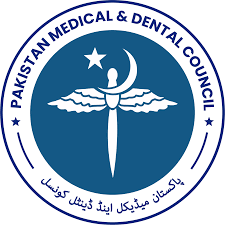Evolutionary Trends: Transforming Medical and Dental Institutions through a Focus on Health Research
DOI:
https://doi.org/10.52442/jrcd.v4i2.78Abstract
Biomedical science has undergone a significant transformation in the last 75 years, shifting from discipline-based approaches to collaborative, multidisciplinary research teams. This evolution is evident in medical, dental, pharmacy, nursing, and allied health education. The convergence of biological and digital revolutions has reshaped clinical healthcare practices, fostering a more interconnected and holistic approach. This collaborative paradigm emphasizes a synergistic relationship between scientific disciplines, enhancing our understanding of health and disease.
Critical factors in establishing a healthy research environment include the active involvement of faculty and administration, playing a pivotal role in nurturing a research culture by mentoring students. Additionally, the organization of workshops and seminars, coupled with access to digital libraries and research engines, facilitates students and researchers in conducting and writing research papers. Collaboration between different institutes is crucial, as it not only initiates but also contributes to the progress of the overall research culture. Ultimately, this sets an exemplary precedent for integrating research into various medical and dental institutions1.
According to a study conducted in Nigeria, Medical and dental researchers in Nigeria perceive gender inequality embedded in research institutions, driven by societal, cultural, and religious patriarchal values. This results in low numbers of female trainees, decreased research output by female researchers compared to males, and a scarcity of women in senior managerial roles, similar trends are observed in Pakistan too. Substantial efforts are needed to establish a supportive environment for female researchers, involving the development, monitoring, and enforcement of norms fostering gender equality. There is a critical need to cultivate a pool of gender experts in medical and dental research institutions capable of designing and promoting effective measures for gender equality 2. Additional challenges encompass inadequate knowledge in paper writing, including data collection and research methodology, along with insufficient funds and support from faculty and administration 3. The fundamental challenge in Pakistan lies in the insufficient provision of research grant incentives for young researchers, coupled with the lack of enticing perks for those pursuing a career in research. Additionally, there is a pressing need to align our medical curriculum with research objectives. Surveys conducted indicate a pervasive lack of awareness in Pakistan concerning the significance and benefits of engaging in research activities. Addressing these issues is crucial for fostering a culture of research and innovation in the country 4.
The future of medical and dental research is poised to undergo a significant transformation through digitization and the integration of artificial intelligence. This shift aligns with the demands of modern times, serving not only to invigorate existing research models but also to unlock the innovative potential within the realms of medical and dental research. This digitalization, coupled with the power of artificial intelligence, is expected to propel a paradigm shift in the approach to medical and dental research.
In essence, the convergence of digitalization and artificial intelligence is not just a technological upgrade but a catalyst for a broader shift in the very nature of medical and dental research. As we embrace these technological advancements, the research community can anticipate a future where the boundaries of exploration are expanded, and the potential for groundbreaking discoveries is heightened, ultimately leading to a more profound and impactful era in medical and dental research 5.
The Rehman College of Dentistry (RCD) took the lead in promoting a research culture by introducing courses like the Certificate in Health Research (CHR) for both undergraduate and postgraduates. These courses aim to instill critical thinking, reasoning skills, and a positive mindset towards research right from the beginning of their medical careers.
In 2022, Rehman College of Dentistry took the initiative to organize the inaugural National Research Day, followed by the International Conference in Health Research in 2023, known as ICHR’23. During these events, a multitude of workshops and seminars were conducted, playing a crucial role in fostering a culture of research and scientific thinking. These activities also served as guiding beacons for other institutes in Khyber Pakhtunkhwa (KPK), inspiring them to adopt a similar approach.
In the future, the integration of diverse scientific perspectives is anticipated to generate new ideas and advancements in health education and research. Consequently, this is expected to result in enhanced outcomes for patients and contribute to the overall improvement of society. It involves a collaborative culture where thoughtful minds come together to ascend the steps of research and professionalism.




